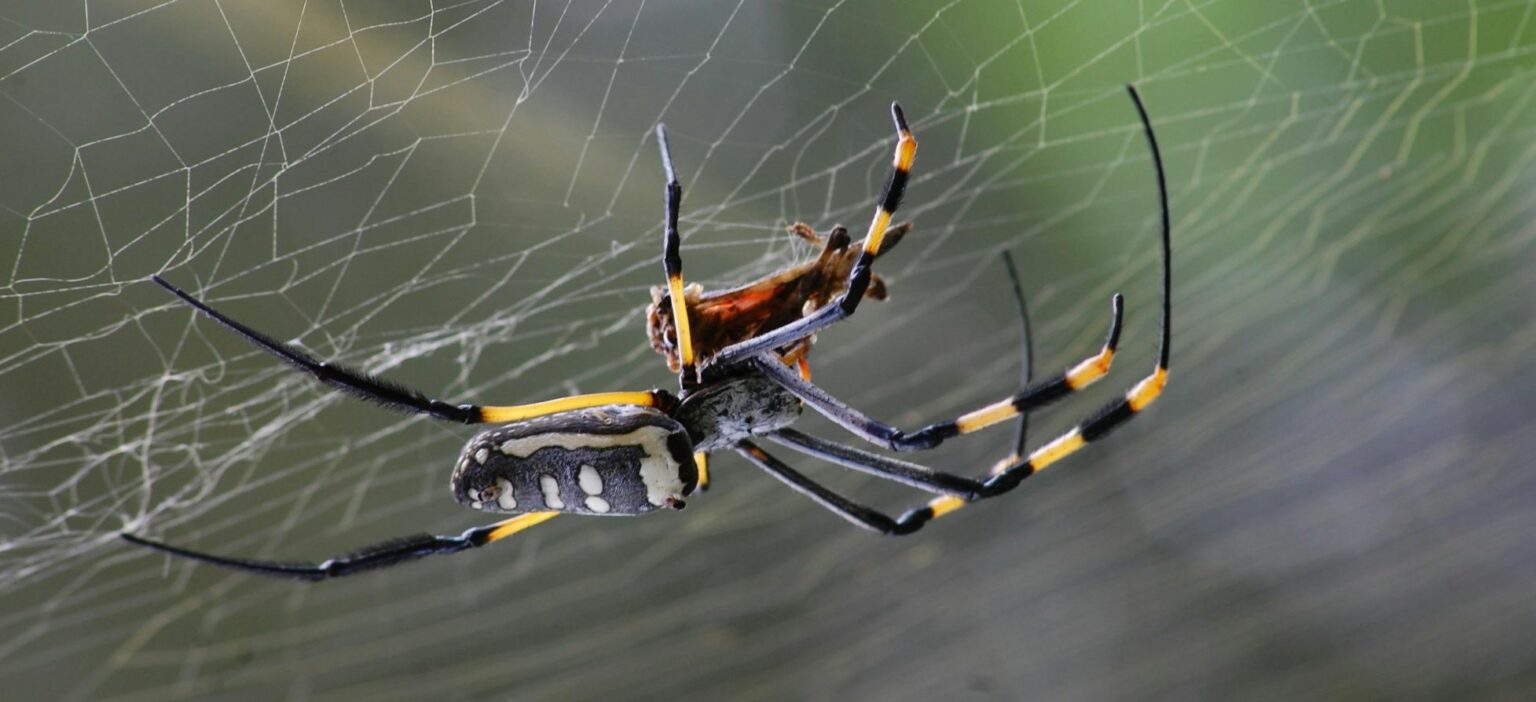When it comes to an Africa hunting trip, the hunter must be prepared to take on the big five and those pesty little critters that can ruin a hunting safari. If the hunter is either ill-prepared or uneducated as to dangers while on the hunting safari, not only can the Africa hunting trip be ruined, but it can also end up being potentially life-threatening.
Let us begin with one of the most asked questions about hunting the “Dark Continent” of Africa.
[DYNAMIC-BLOGTABLEOFCONTENT]
What Does The Big Five Mean For A Game Hunting Safari?
- Big Five hunting in Africa refers to the most dangerous and sought-after African trophies, including the African elephant, Cape buffalo, Rhino (black or white), African lion, and my personal favorite, the leopard.
- Big 5 hunting in Africa takes those fortunate enough to the remotest of destinations, usually a distance away from settlements, hospitals, and retail outlets.
- It is thus imperative that the first-time visitor on their Africa hunting trip is suitably prepared with regards to products (items to pack), knowledge of potential dangers, and medical preparations (vaccinations).
Top Killers While Big 5 Hunting In Africa (To Name But A Few!)
When thinking about African killers while Big Five hunting in Africa, we tend to think of enormous beasts with big teeth, sharp claws, and a deadly stare in their eyes, just waiting to rip you apart for the fun of it. Think again.
Top killers when Big 5 Hunting in Africa: The Mosquito
In fact, our top African killer is the mosquito, that tiny little pest that is so annoying between sunset and sunrise. Why always when enjoying a first-morning coffee or an ice-cold sundowner?
Not only do mosquitoes kill more than one million people per annum in Africa, but they transfer diseases to more than 70 million people. Mosquitoes carry the deadly Malaria virus. The good news is that vaccines are available, so firstly, check if your hunting safari is in a malaria area, and if so, ask your medical practitioner for a prescription. Always ensure that you pack local products such as “Peaceful Sleep” or “Tabbard” to stop even “normal/malaria-free” mosquitoes from biting. These bites can become infected in the African heat. A tube of antiseptic cream is always wise to keep in hand.
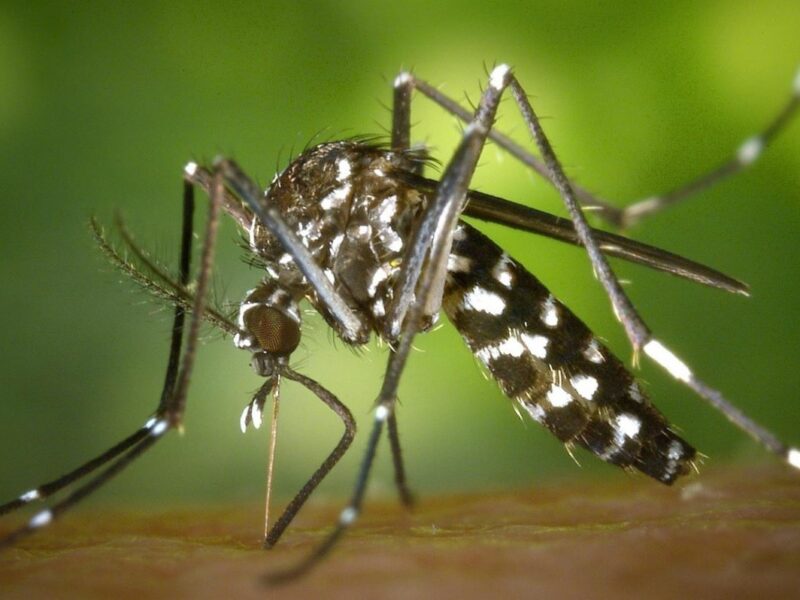
Top killers When Big 5 Hunting In Africa: The Black Mamba
The Black Mamba is deadly. Without an antidote, it is certain death. It is lightning-quick, unafraid, and can strike up to 12 times in a single attack! It is not viable for African outfitters to have antidote stock, as it expires and is exceptionally expensive. Preferring savannah, trees, and scrub areas (great, the same territories as us hunters!), they can move at more than 30 miles per hour. There will be no escape…
Top Killers When Big 5 Hunting In Africa: The Puff Adder
Puffadders are known for their ability to be exceptionally camouflaged, usually baking in the dry leaves on the pathways that the hunting safari group is walking. They are sneaky critters. The only good thing about a puff adder bite is that its venom is cytotoxic, which means it is slow acting.
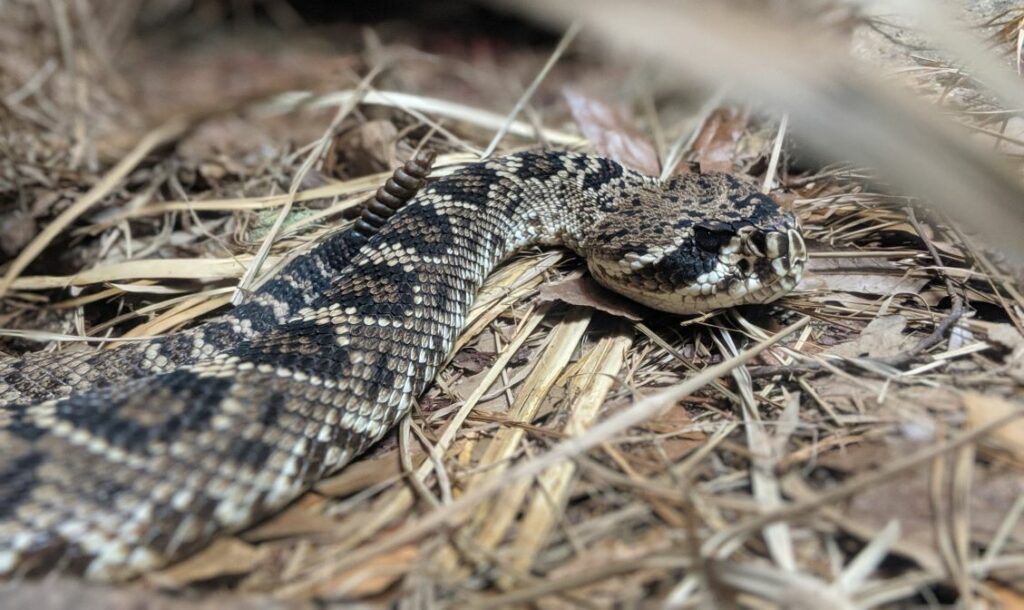
This may result in your African outfitter possibly being able to get you to a medical facility in time, but your game hunting safari will be over. Wear long pants, and while looking out for that trophy Cape buffalo, glance at the ground occasionally. My personal advice is to walk behind another member of the hunting safari!
There are a few additional venomous African species, such as the Boom Slang, Green Mamba, and Mozambique Spitting Cobra. I advise staying well away from all snakes, and then the hunter should be all good!
Top Killers When Big 5 Hunting In Africa: Scorpions
Are there deadly scorpions in Africa? Yes, there are deadly scorpions in Africa! The most venomous scorpion goes by the name of Death Stalker (somehow, this seems appropriate). Its venom is the most expensive liquid worldwide, used in cancer treatment innovations.
In Southern Africa, two species are well-known for causing fatalities: the Rough Thick Tail Scorpion and the Transvaal Thick Tail Scorpion. Always check the ground when resting and in the dark corners of your lodge.
Top Killers When Big 5 Hunting In Africa: The Tsetse Fly
The Tsetse Fly is responsible for one of the deadliest diseases in Africa, Sleeping Sickness. The Tsetse Fly is known as a vector of trypanosomes. Sleeping sickness takes a few days to three weeks to “kick in,” and symptoms include headaches, fever, itchiness, and joint pain. If not treated, the infected hunter will fall into a coma, suffer mass organ failure, and meet his Maker.
Top Killers When Big 5 Hunting In Africa: Spiders
Now, as an avid hunter and wildlife enthusiast, I would rather face a charging Cape buffalo armed with a .22 caliber rifle than come face to face with African spiders!
The Button Spider
The Button Spider, both black and brown, are highly venomous. They are common and found all over Southern Africa and make cool and dark places their homes. These spiders have neurotoxic venom, which attacks the nervous system. The good news is that while the hunter enjoying his game hunting safari may suffer body contortions and uncontrollable shaking, no deaths have been recorded.
The Violin Spider
The Violin Spider almost always bites at night… lovely! Violin spiders have cytotoxic venom, which slowly destroys body tissue.
Those for whom an African hunting trip is not their first rodeo will be all too familiar with the cans of “Doom” spread around the hunting lodges in Africa. One begins to panic a little when you seem to have been issued an empty can!
Top Killers When Big 5 Hunting In Africa: African Killer Bees
We know how important our favorite honeybees are to our environment.
However, while Big 5 hunting in Africa, there is always a possibility of bumping into a swarm of Africanized Honeybees, also known as African Killer Bees. An attack from a swarm of African Killer Bees will be deadly.
Pests while Big 5 Hunting in Africa
When game hunting in Africa, I often refer to something as a pest because it looks nasty and gives one a fright of note when you least expect it.
Top killers When Big 5 Hunting in Africa: Red Roman Spider
If the season is right, most game hunters will have met with one of these beasts while on their African hunting trip. Red Roman Spiders, also called Sun-Spider or Wind Scorpion, are not spiders at all but belong to the Arachnida species.
It has sizable jaws and is known to cut the hair of sleeping hunters or animals. The Red Roman then uses the hair to build its nest. Lovely, and sleep was already avoiding me.
This Sun Spider is active during the day in warmer climates and dryer regions. It seeks to hide from the sun by chasing shadows, usually those belonging to the members of the hunting party enjoying their Africa hunting trip. This gives the person the idea that they are being chased. These Red Romans can also jump, so arm yourself with a tennis racket to whack them in mid-flight or a 12-gauge shotgun. Luckily for us big game brave hunters, these Wind Scorpions are harmless but can give a little bite if handled.
Top Killers When Big 5 Hunting In Africa: Jerusalem Crickets
These large-headed, flightless insects are primarily found in South Africa. They really do look nasty! These terrors are generally nocturnal and are equipped with sizable front legs mainly used for digging.
They can produce a nasty smell and, if handled, can bite. But it’s not life-threatening at all.
Top Killers When Big 5 Hunting In Africa: Centipedes
If game hunting in Africa during the warmer months, chances are that the hunter will come across a few of these. Hunting lodges in Africa are used to dealing with these pests; I am sure they have heard their fair share of screams.
The giant African centipede can grow to over seven inches long, and these insects are cannibals, feeding on their own kind (good, there will be less of them!).
Centipedes, if provoked, can bite people. Some centipedes have venom, which produces toxins such as histamine and serotonin. While not fatal, venom released can cause allergic reactions like a bee or wasp sting.
Top Killers When Big 5 Hunting In Africa: Golden Orb Spiders
If you have been fortunate enough to have gone hunting in South Africa, you will know this spider very well.
Golden Orb Spiders are known to weave their webs at exceptional speeds, and they are enormous. The web often spans large areas between trees, scrub, and bushes. Their web is so strong that it is said that if the web is woven to the thickness of a piece of paper, it will stop a bullet from a 9mm pistol.
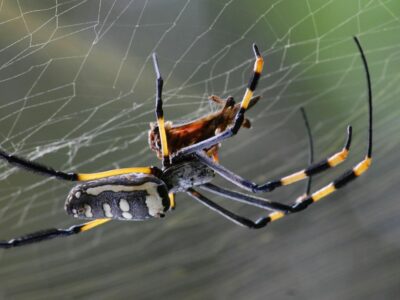
While harmless to humans, these spiders can most certainly provide entertainment while on the hunting safari. There is nothing quite as humorous as watching a hunter walk into a web and then break the silence of the hunting safari with panic words of, “Is it on me, is it on me?”
The only thing worse than not finding the spider is being the one walking into the web. Again, the advice is to always walk behind the professional hunter. When big game hunting, I arm myself with my two favorite weapons: 1) The 500 NE double rifle and 2) an entire can of “Doom!”
Other Important Dangers While Big 5 Hunting In Africa
Sunstroke
This danger is high on the list during any hunting safari. International news is constantly reporting on deaths/million during national heatwaves.
When we bought a ranch in Limpopo, South Africa, we asked the local veterinarian about the most significant danger while on a game hunting safari. The answer, to our surprise, was sunstroke.
Sunstroke, also known as heat stroke, is life-threatening. It is the most critical and severe form of hyperthermia. Heatstroke occurs when the hunter’s body temperature is over 104 degrees Fahrenheit. Heatstroke can lead to organ failure, brain damage, and death. Heatstroke while big game hunting is usually caused by physical overexercising in hot and humid conditions.
Symptoms Of Heatstroke (very important to take note of)
- Increase in heart rate.
- Nausea and vomiting
- Sweating with cold and clammy skin
- Increase in heart rate
- Muscle cramps
Factors Increasing A Hunter’s Chance Of Heatstroke While On A Hunting Safari In Africa
- Lack of water consumption
- Volume of alcohol and caffeine consumption
- Use of medications affecting the body’s water retention
- Obesity
What Is The Quickest Way To Treat Sunstroke While Big Five Hunting in Africa?
- The hunters, or another member of the hunting safari who has fallen to heatstroke, need to drink as many sports drinks or rehydrating beverages as possible (not cold beer).
- Clothing must be removed, and the individual needs to submerge themselves in a bath of water as soon as possible to reduce the body temperature.
- This reduction in body heat will prevent death and damage to internal organs. Once out of the bath, cover the individual with a cold and damp cloth to maintain the cooling process.
Dehydration
When Big 5 hunting in Africa, many hours a day are spent out in the field on the tracks of your quarry. It is imperative always to remain hydrated. The human body can lose more than 1,5 gallons of liquid a day in hot conditions, and the body is being exerted to the limits.
Early signs of dehydration can include dry mouth, dizziness, tiredness, and passing dark-colored and strong-smelling urine. The quickest way to address symptoms of dehydration is to drink liquids containing electrolytes. For severe cases of dehydration, the hunter may require IV hydration for faster turnaround.

Secondary Dangers For Hunters While Big 5 Hunting In Africa
Practicing of Safety
Any top-quality African outfitter will tell you there are three crucial considerations to always take cognizance of while game on an African hunting trip: SAFETY, SAFETY, and SAFETY.
It is easy to get caught up in the moment and forget these golden rules while on your big game hunting safari. Social media is packed with videos relating to African big game hunts. Animals are charging, people are jumping all over the place, and bullets are flying. They always end off with” high-fives.” I often wonder if they are celebrating the successful harvest of the dangerous game animal or the fact that no one was killed during the hunting safari.
The biggest danger for the hunting safari members is not to shoot each other. Ensure that you know the path of the bullet and where it will always come to rest.
Accidental Discharges, also referred to as “ADs,” do happen on occasion. Whether due to negligence, purely unintentional while clearing a bullet jam in the chamber, or a blockage in the magazine. Always maintain a safe direction.
Gun safety cannot be overemphasized. An injury relating to an AD, while still being accidental, can be life-threatening and can always be avoided. The action cannot be undone, so avoid unpleasant consequences and have to deal with the administration at the end of what should be a dream Africa hunting trip.
Safety When Big 5 Hunting In Africa
Is a game hunting safari in Africa safe? Yes, African hunts are safe. Like any other tourist destination, there are always a few tips to follow when it comes to safety:
- Stay away from walking alone at night, in the bush, or in towns or cities while overnighting.
- Like any first-world country, leave your luggage in sight.
- Check that there is not any civil unrest in your destination of choice.
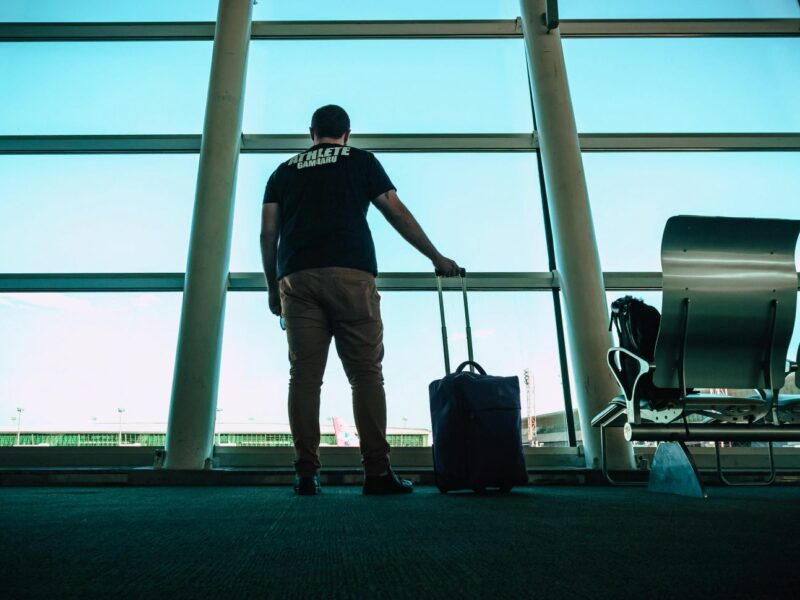
Always book through a reputable booking agent such as Game Hunting Safaris.com
From venomous critters to carnivorous reptiles, do not let these dangers ruin your hunting safari. Africa is magical and will always be the preferred game hunting destination.
Read more about big game hunting in Africa, South Africa as a hunting destination, or dangerous game hunting options.
Author: PC van Wyk
